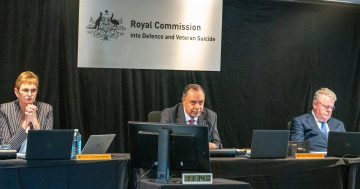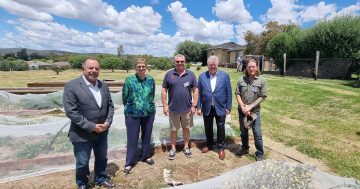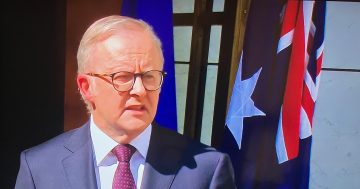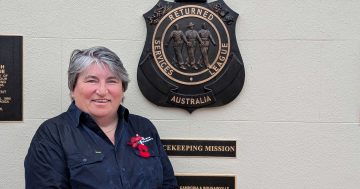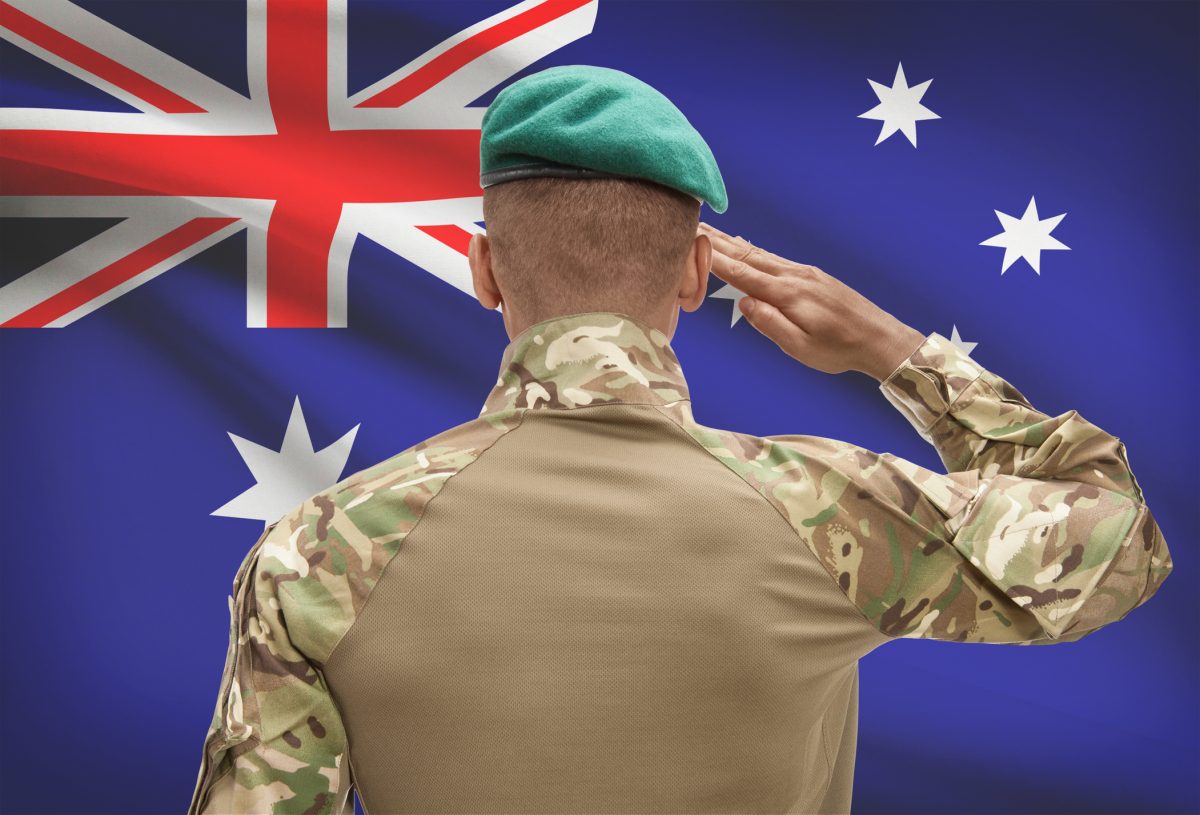
The Royal Commission into Defence and Veteran Suicide has handed down its interim report, with more than a dozen recommendations. Photo: Serhej Calka.
Vietnam veteran Bob Hayward said the Royal Commission into Defence and Veteran Suicide’s Interim Report was “absolutely startling”.
“The government has completely lost the plot over so many decades concerning our veterans,” Mr Hayward said.
Mr Hayward shared the story of his father, who was a young duty officer at Kapooka at the time 26 soldiers were killed in an explosion in 1945.
He said as the first officer on the scene, the tragedy traumatised his father for life and he had nightmares every night.
“My father told me he knew exactly what happened but it would die with him,” he said. “They did not want him speaking about it.
“Twenty years ago, my father went to the DVA (Department of Veterans Affairs) on another issue where he was questioned, and they laughed at him about the fact he could have any PTSD.
“When they found out what happened in Wagga, they changed their opinion.”
The Royal Commission’s interim report delivers 13 recommendations for immediate action with an urgent call to clear the backlog of claims.
These include simplifying and harmonising veteran compensation and rehabilitation legislation, improving the administration of the claims system and eliminating the claims backlog.
The report identified 42,000 compensation claims awaiting processing with a wait time of 12 to 18 months and said that this, coupled with poor communication about timeframes and expectations, causes considerable distress to some veterans.
Wagga solicitor David Thorley, of David Thorley Veterans Solicitor Law Practice, weighed in on the Commission’s report and said he would’ve liked to have seen more immediate recommendations to hold people accountable for how they treat other Australian Defence Force (ADF) members. Particularly when it comes to issues like bullying and mental health.
“It stands out like the proverbial, with report after report about harassment,” Mr Thorley said.
“With the relatively young section of the community, there will always be problems with sex.”
He said veterans and defence personnel weren’t looked after as well as they should be.
Mr Thorley believed some of the urgent problems had to do with the culture in the ADF.
He said the recommendations were largely mechanical, with most focusing on harmonising the legislation.
“The Productivity Commission made these recommendations in 2019, and the DVA has not progressed,” he said.
Mr Thorley said the recommendations made a fairly tight timeframe for the government to get their act together.
Member for Riverina Michael McCormack said the report was an important part of the process of the bipartisan commitment to supporting the health and wellbeing of those who have served our nation in the defence forces.
As the former minister for veterans’ affairs and defence personnel and assistant defence minister, Mr McCormack said he had met with and listened to veterans for many years.
“I have heard their stories,” Mr McCormack said.
“I know the recommendations in the interim report will be considered by the government and I trust they will be addressed in due course.
“For many veterans, serving in the Australian Defence Force has been rewarding and they have had no issues after entering civilian life, but I know that is not always the case.”
Wagga RSL Sub-Branch president David Gardiner said the recommendations from the report were great, particularly with the backlog of DVA claims.
“It’s a major problem and one that certainly needs fixing,” Mr Gardiner said.
The Royal Commission’s inquiry focuses on identifying systemic, structural and cultural issues and solutions to suicide and suicidality among serving and ex-serving Australian Defence Force members.
The report also makes some preliminary observations about various issues, including suicide prevention and wellbeing, families, Australian Defence Force culture, transition, and a possible body to follow the Royal Commission.
The Royal Commission will continue to carefully read the submissions, listen to people with lived experience, consider evidence, hear from experts, and conduct research until the final report is handed down in June 2024.
The Wagga hearing is set for 28 November.
The recommendations:
- Simplify and harmonise veteran compensation and rehabilitation legislation
- Eliminate the claims backlog
- Improve the administration of the claims system
- The Department of Veterans’ Affairs to provide advice on its funding needs
- Remove the Department of Veterans’ Affairs Average Staffing Level Cap
- Increase protections for persons engaging with this Royal Commission
- Provide exemption from parliamentary privilege
- Limit public interest immunity claims
- Improve administrative release of information
- Co-design information to increase awareness of redactions for access requests
- Embed trauma-informed practices for information access
- Encourage up-to-date consent for information access
- Co-design education on information access mechanisms
If this story has raised any issues for you, please contact Lifeline on 13 11 14, Suicide Call Back Service on 1300 659 467, the Defence all-hours Support Line 1800 628 036, Open Arms 1800 011 046 or Soldier On 1300 620 380.
Original Article published by Shri Gayathirie Rajen on Region Riverina.








